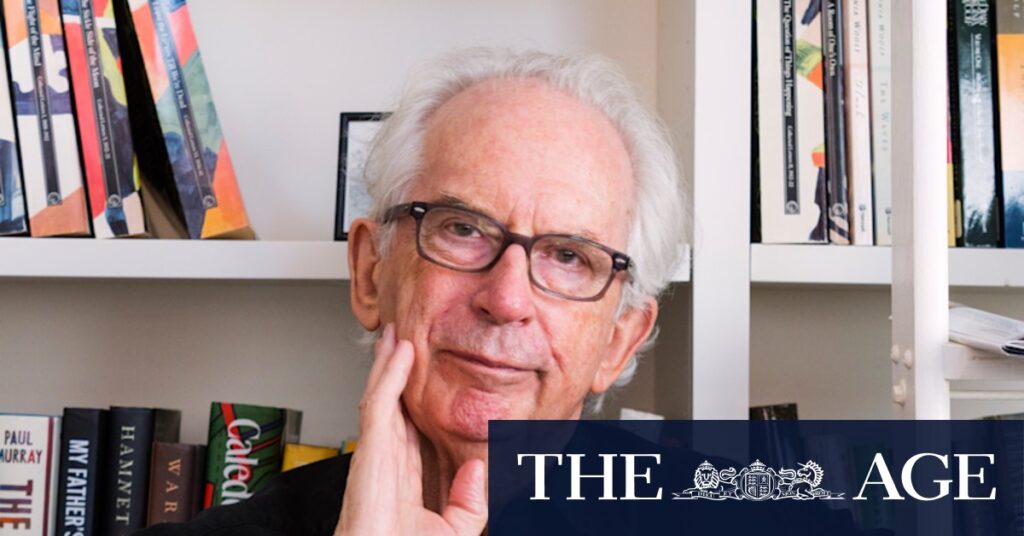
In a quiet revelation that marks the end of an illustrious literary career, acclaimed Australian author Peter Carey has announced that his novel A Long Way from Home will be his last. Speaking from his New York residence, Carey, who is the only Australian to have won the Booker Prize twice, confirmed that he has ceased writing novels, a decision that reflects both a personal and creative milestone.
Carey, now 82, shared his thoughts with a mix of nostalgia and acceptance. “I didn’t think I’d stopped. I had a fear that I might have written all the novels I needed or should write,” he admitted. “But I persisted, and tried various things, and threw things away … and in the end I thought, well, that’s it.”
A Storied Career in Literature
Peter Carey’s journey from Bacchus Marsh to becoming a literary giant is a testament to his unique voice and vision. Over the years, he has crafted 14 novels, including notable works like Illywhacker, Oscar and Lucinda, and True History of the Kelly Gang. His books, characterized by mythmakers and tricksters, have offered a funhouse mirror version of Australian history, blending humor, violence, and absurdity.
Carey emerged alongside a transformative generation of Australian writers, carving a path that mixed high style with larrikinism, postmodern and postcolonial play with emotional heft. His rhythm of producing a new novel every few years was a constant, until it stopped with A Long Way from Home, nearly eight years ago.
The Significance of A Long Way from Home
Published in 2015, A Long Way from Home stands as one of Carey’s most meaningful works, despite not being universally regarded as his best. The novel follows a 1950s car race across Australia, but delves deeper into the country’s foundational violence and settler legacy. Carey, a white Australian, aimed to tackle themes of imperialism and invasion, a risky endeavor that he felt was successful.
“I didn’t make a dick of myself,” Carey commented on his handling of the sensitive subject matter.
The novel marked a turning point in Carey’s career, as he grappled directly with Australia’s history and national mythology. Despite its significance, Carey acknowledges the diminishing fuss surrounding his later works, a natural progression as an author becomes part of the literary furniture.
Life Beyond Novels
While Carey may have closed the chapter on novel writing, he remains creatively active. He is currently working on a non-fiction project, which he describes as “enough to keep me off the street.” This new venture allows him to engage with different challenges and continue exploring his creative boundaries.
In addition to his writing, Carey has made significant contributions to the academic world. For nearly two decades, he was a distinguished professor and executive director of the creative writing MFA at Hunter College. His tenure helped build the program into one of the most competitive in the United States, producing notable alumni such as Susan Choi and Jennifer Egan.
Reflecting on his departure from academia, Carey mentioned, “There were … let’s call them administrative issues, shall we? That went on for a couple of years. I resolved them. But I didn’t want to deal with any of that ever again.”
Legacy and Reflections
This year marks the 25th anniversary of Carey’s True History of the Kelly Gang, a novel that won the Booker Prize and remains a defining work in his career. Carey’s contributions to literature are celebrated in exhibitions like the State Library of Victoria’s Creative Acts, where his personal archives, including drafts and manuscripts, are displayed.
“It feels like yesterday really. Well, not quite, but 25 years is sort of shocking. I mean, shit,” Carey reflected on the enduring impact of his work.
As Carey transitions to a new phase of his life, his legacy as a storyteller who captured the complexities of Australian identity and history endures. His decision to stop writing novels is not a retreat but a natural evolution for an artist who has always followed his creative instincts.
Peter Carey’s journey from the boy from Bacchus Marsh to a global literary figure is a reminder of the power of storytelling and the lasting impact of a writer’s voice. As he continues to explore new territories in writing, his past works remain a testament to his remarkable career.







